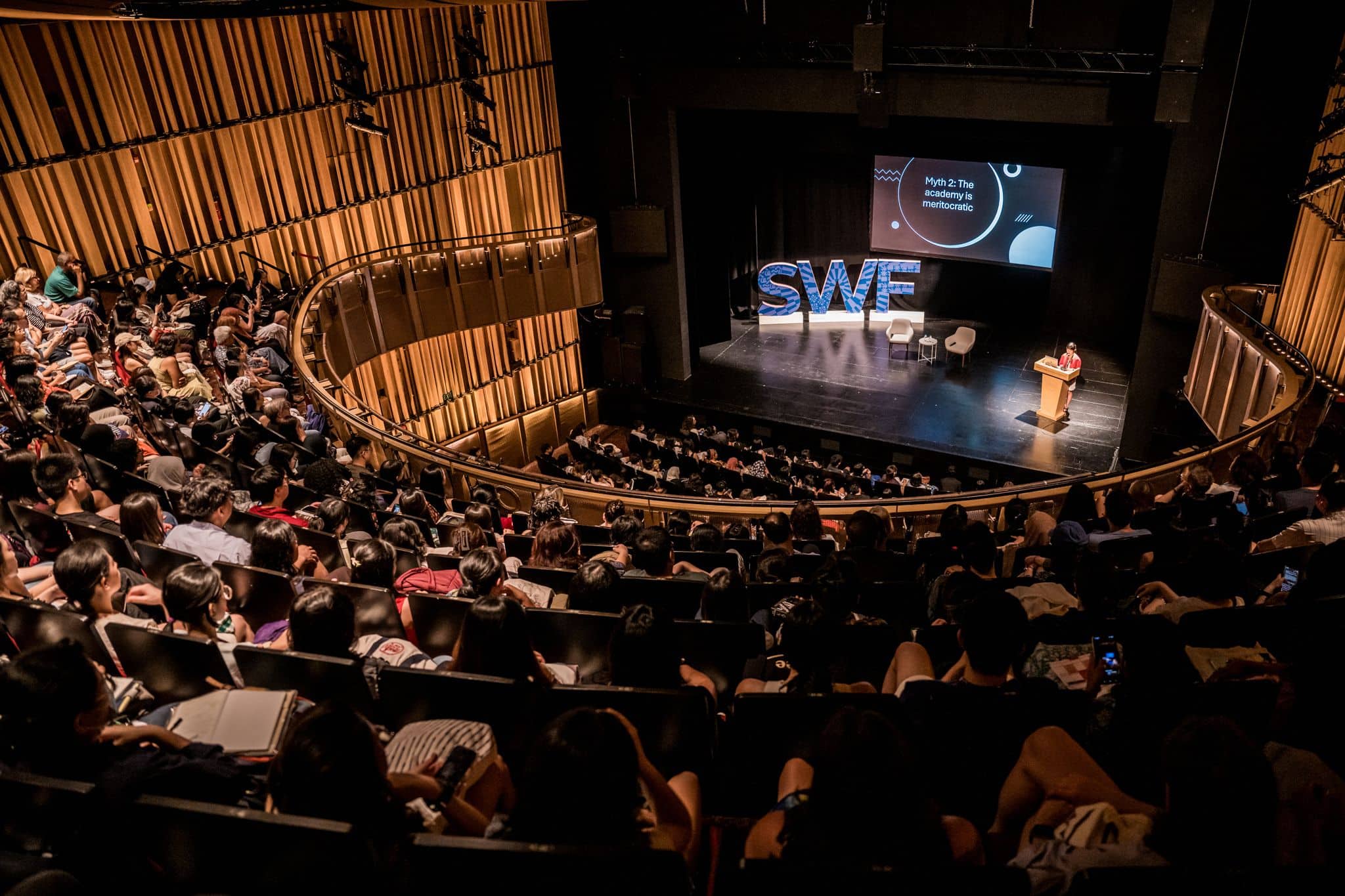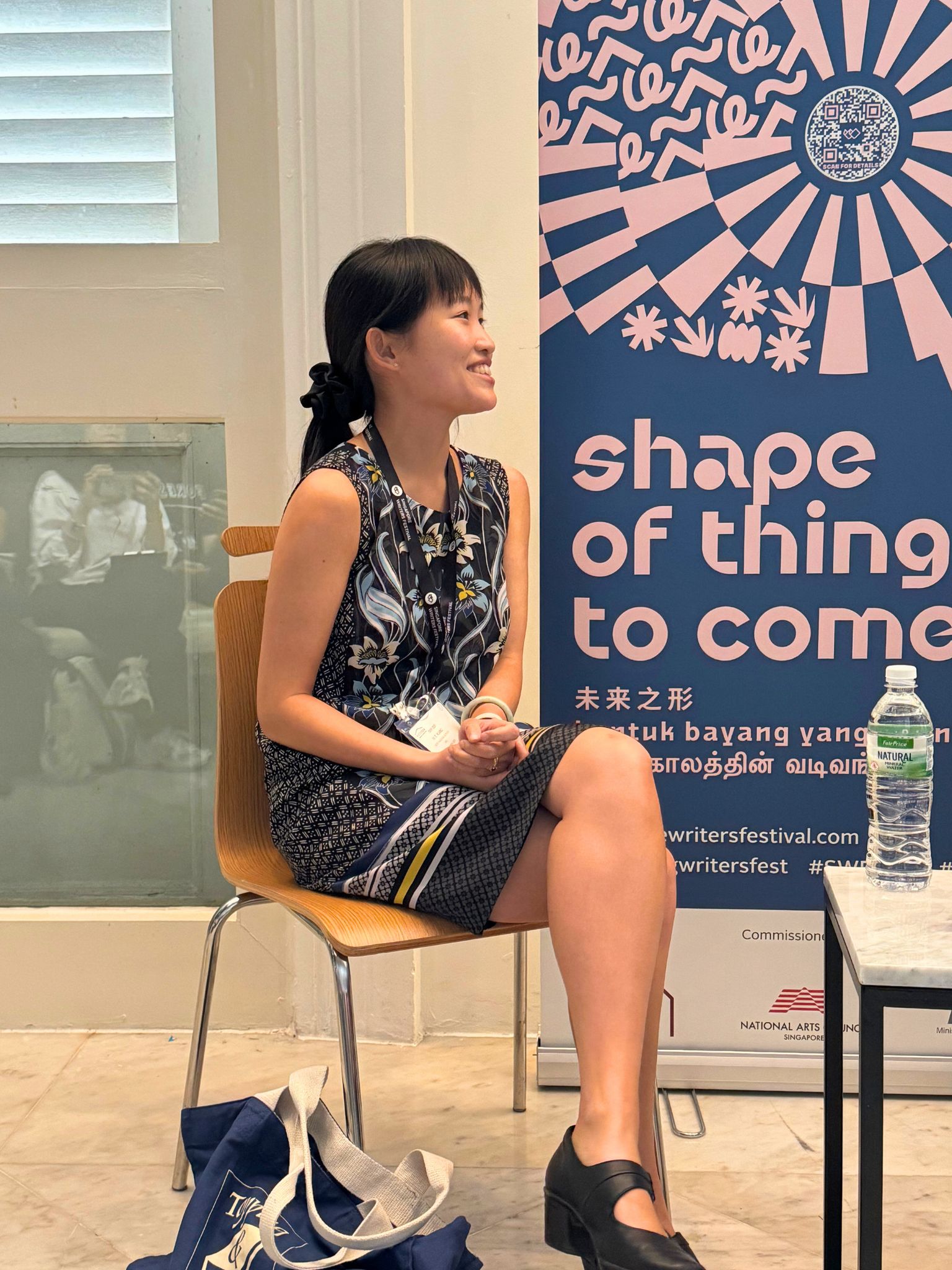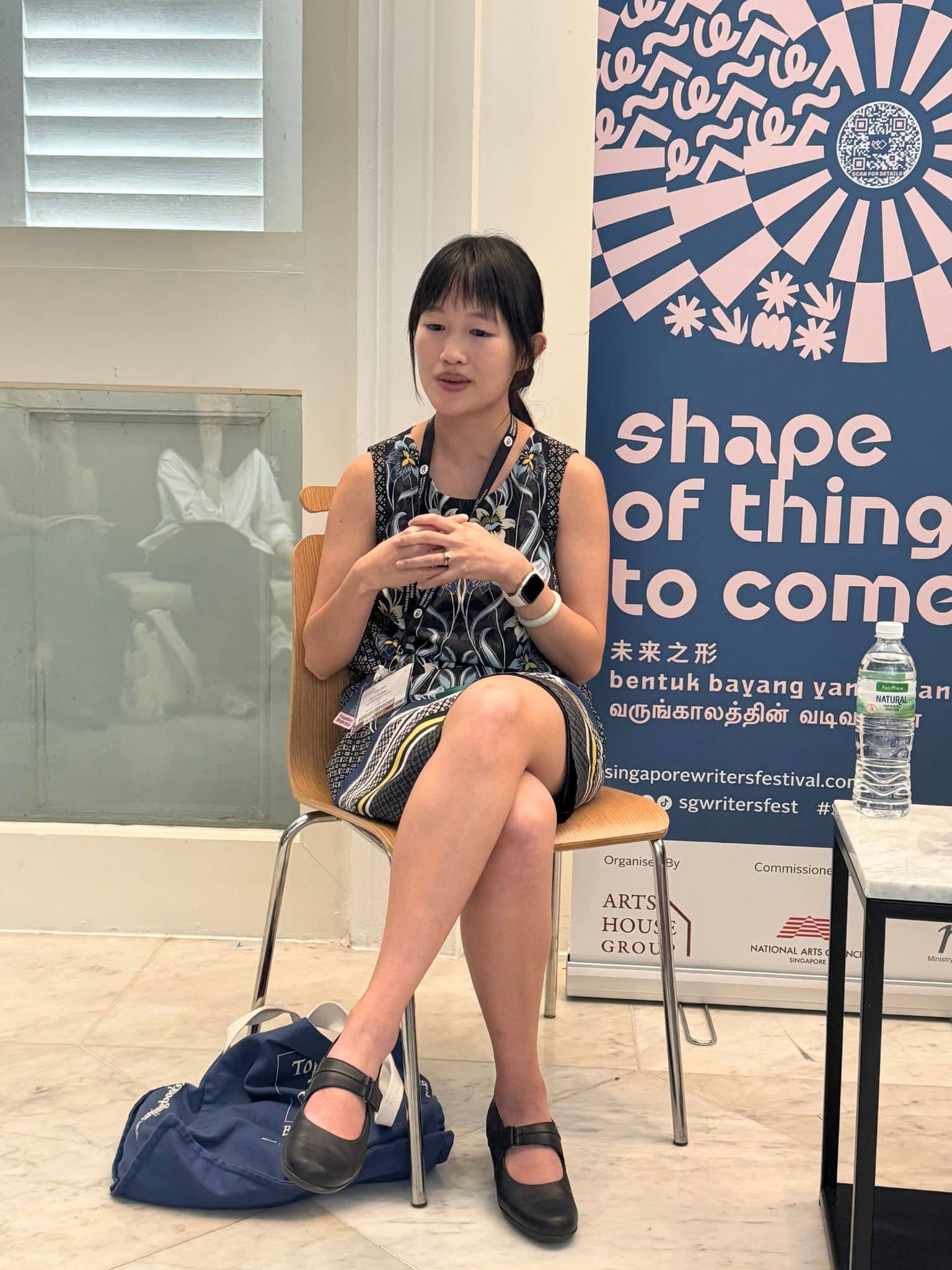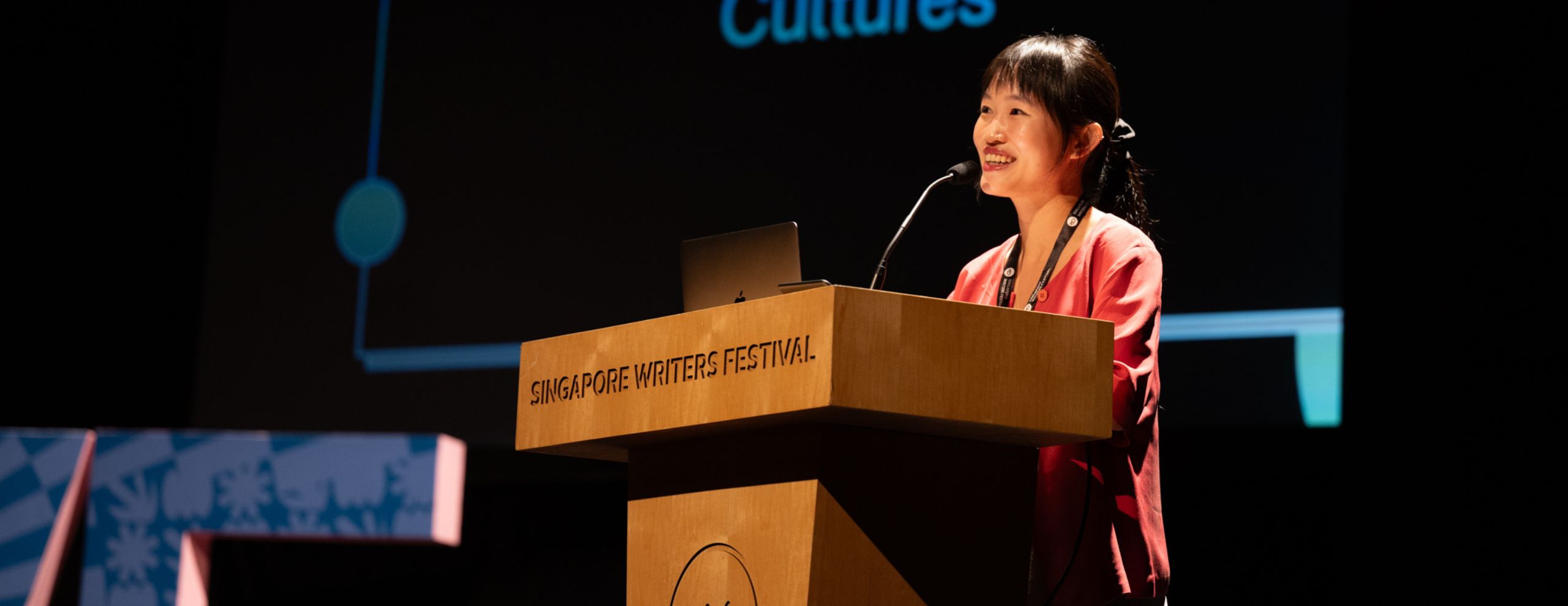Like every reader the Singapore Writers Festival is an exciting time of year where we get to come together and celebrate all things literary; from discovering new ideas through panel discussions to meeting local and international authors in person.
This year’s edition was a particularly exciting one for me after finding out that one of my favourite (and most buzzed about) authors, R.F. Kuang, was set to make an appearance in the opening weekend of the festival.
For those unfamiliar with her works, R.F. Kuang also known as Rebecca F. Kuang is an award-winning, #1 New York Times and #1 Sunday Times best-selling author of The Poppy War trilogy, Babel: An Arcane History, Yellowface, and the most recent Katabasis.

But, being an author is not a full-time job for Rebecca who is also a full-time PhD student at Yale with a MPhil in Chinese Studies from Cambridge, and an MSc in Contemporary Chinese Studies at Oxford.
Following the conclusion of her panel on Sunday, we were given an opportunity to meet with her for a fireside chat, and it was probably no surprise that I leapt at the opportunity to do so.
We were all gathered in a small room within Victoria Theatre where we waited with bated breath until Rebecca walked in, carrying a Topping & Company Booksellers tote bag — which was very on brand.
The chat kicked off with Rebecca answering some of the questions that were initially submitted by the media, including ours, which coincidentally was the first question she had to answer on how she world-builds for her books.
With a chuckle, she said: “Why did you have to start with such a difficult question?”
“This is interesting for me because I think world-building doesn’t come naturally for me, it usually comes later in the process. I know a lot of writers who love to build the world first, like it’s a video game, and they create this big document with the history and the geography, and they make all these maps, but I never use maps when I’m writing.”
In fact, she shares that she does the opposite, turning in maps after. But, even that posed a challenge as she would forget where everything was.
“So, I have to go back and read my own work, and make a note of all the major landmarks and creating that retroactively,” said Rebecca.

Even though that might sound like the exciting part to us readers, it isn’t the case for her.
“Worlds don’t exist until they are experienced subjectively by the characters and their struggles, and their conflicts are way more interesting to me.”
She continued, “So that’s what comes first and then the world starts loading itself, like secondarily, as the natural setting where these themes and conflicts are playing out, and I think that ends up being inspired by the relevant history and the field on which these ideologies are generated.”
“No world exists except for through the perceptions of the people who are thinking about them, and who experience them in different ways.”
Getting a glimpse into just a fraction of how her brilliant mind works, I thought back to the time when I first picked up a copy of Babel in the bookstore and thought, ‘man, this is going to be daunting to read’. It didn’t help that at that time BookTok was flooded with fans of R.F. Kuang who were developing recommended reading lists to accompany the journey through the text.
This, of course, led to the question on how Rebecca would make her books accessible and not alienating readers who might find her academic topics very complex.

“I don’t think in terms of accessibility, and I think it’s the wrong place to start,” said Rebecca.
“I think if you’re asking yourself, is my reader even smart enough to understand this, you’re already going down the wrong path because you put yourself in an unequal relationship with the reader that is kind of patronising and condescending.”
And one of the best advice she had on this topic was something she read in one of American novelist Marilynne Robinson’s essays.
“It’s condescending in three ways — It’s condescending to yourself as a writer, to think that you have to dump things down to make them accessible; it’s condescending to the craft of writing, to think that you have to take these complex topics and make them popular; and it’s condescending to the reader.”
In that sense, she found it more helpful to think of herself as taking the reader’s hand in this “journey of curiosity”, because just like the readers, Rebecca isn’t an expert in the topics that she writes about.
“When I get excited about topics and I want to turn them into stories, it’s often because I am learning about them the first time,” said Rebecca, “In Katabasis for instance, I’m not a philosopher. I’ve never studied philosophy, I’m not a magician. I had to ask people, literally, to come to my home to teach me these logic paradoxes.”
This led to how she came up with the spells that the characters use in her book, Katabasis, which were inspired by a paradox party that she threw where she invited a lot of her husband’s colleagues, who are philosophers like him.
The idea was for them to come over with a good paradox that could work like a spell, and they would get fed. During this process of making it easy for her to understand, she also settled on the phrasing and the articulation that would make it legible for the reader.
She said: “I like to think that all of my books are just invitations for the reader to be curious about things with me and to go down that investigative rabbit hole with me as opposed to telling the reader, ‘I know this really well, let me simplify it for you’, because I actually never simplify anything.”

In the hour that I spent with Rebecca, I found her to be so brilliantly eloquent and unfazed by the many hard-hitting questions that were being swung her way, and even though she was by no means an expert in the subject of the queries, which were largely politics-related, her opinions were carefully measured and adapted to be food for thought, rather than absolute truths to the matter.
It was perhaps this that really highlighted why she was such a popular literary figure in today’s reading world, and why so many young individuals are taking a liking to her works like a moth to a flame.
But, if I had to take away anything from the conversation with her, it was the idea on the idea of good writing. Even though I make a living in this field, this is something that I do struggle with, especially when I have to compete with not only the rise of AI but also newly minted writers and their perspectives.
On this, Rebecca shared that the most dangerous thing for a writer is to be “soloistic”, to only exist within their own heads, because they will only have “one version of how the world works”.
“In order to be a good writer, you have to read constantly and comprehensively, and broadly. You also have to read across different literary movements because this trains your mind to think in terms of not only different conceptual metaphors, phrases and imagery, but also how to bring them across languages.”
“Good writing is able to incorporate and demonstrate extensive empathy for a lot of different subjectivities,” she said.
“So whenever I’m feeling like I’d rather stay home or just read a book, I remind myself that living and existing in the world is the most important research I can do to write well-rounded characters.”














